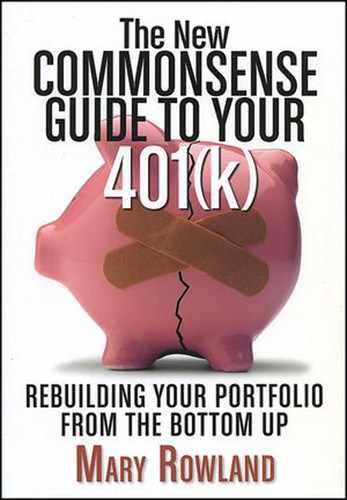WHAT IS YOUR PASSION? What do you do well? Of course we'll always have managers. But you need to develop a skill that you can perform on your own. Here is the problem for millions of middle managers who were "downsized" or "outplaced" or just plain fired as the American economy grew leaner and maybe meaner. As corporations became flatter and team management replaced the management hierarchy, few people are being paid simply to manage other people. If you want to succeed, you must identify something you can do that commands a fee or a salary. Managing is not it.
It's not easy for many people to discover what their skills and talents are beyond the title a corporation gives them. "But we all have a lot of neglected talents," says Handy. "It's a matter of redefining yourself. You need help because you've only seen yourself in one light."
To free up your thinking about what you're good at, what you enjoy doing, and how you might turn that into a career, Handy suggests that you go to twenty people you know and ask each to tell you one thing you do very well. Handy instructed a forty-eight-year-old advertising executive who had just lost his job to do that exercise. "It was sort of embarrassing," this former adman told Handy. "I got twenty answers and not one of them was advertising." Instead, this man was told that he was very creative, good at organizing teams, presenting ideas, leading people, selecting wines, and recalling historical details. What could be done with those skills?
This one-time adman set up a business taking people on tours of battlefields and other historical sights and vineyards throughout Europe. "He was able to redefine his whole life," Handy says. "It was a nice example of what you can do with some original thinking." It's also an example of the rewards for stretching far afield when you think about what you do well. Many of us have landed in jobs or careers by happenstance or as a result of a pull in youth to "become someone." Many stuck to their jobs long after they stopped feeling any satisfaction from them. We should always be alive and alert to a new opportunity that might have our name on it.
Consider what outplacement firms do for those who are laid off. You might be asked to write an autobiography, breaking up your life into chapters: early childhood, grade school, high school, college, first job. When you get to career, think broadly of the tasks you have done rather than what you've been called such as "administrative assistant," or "human resources director." We tend to think of our career as our recent job.
But even if you have spent your career at one company, you have no doubt had several separate and distinct jobs. Think of a particular task you have enjoyed and duties you've performed well—on the job, in school, or in volunteer projects. A young woman I know who worked as an administrator in a corporation and looked forward all day to yoga class, took a job with a yoga foundation, and a pay cut. Now she travels around the world teaching yoga as well as serving as administrator of the yoga foundation.
When people go through this process, they often discover that there was one particular stop in their career where they loved what they were doing. As they moved along, that passion somehow got lost or misplaced as they became subsumed by corporate politics and management duties. We believe that the path to success must lead up to the next rung of the ladder even if we don't perform well at that level and don't enjoy the work.
For me, it was the promotion to editor or manager that always sent me looking for a writing job at another newspaper. I didn't want to manage other people and tell them how to write. I wanted to write. Thinking through this process helps many people discover what it was they really liked to do. Perhaps that's why so many people who go through the painful layoff process say later: "It's the best thing that ever happened to me."
Even if you are happy in your job now, hone your skills. Whatever you do, you will need computer skills. You need to know how to use the computer and how to find your way around the Internet. Develop your skills in writing, communications, foreign languages, and mathematics. Every year, aim to take on a new area of study. For me, it's been theology recently. I don't expect to become a priest or a Biblical scholar. But I find it fascinating and I'm willing to take the risk that it will pave a new road for me at some point. Already it enriches my life. Maybe you'd like to study music or poetry or art or physics or international relations. Everything you learn makes you a more fascinating person and more attractive to potential employers or clients.
